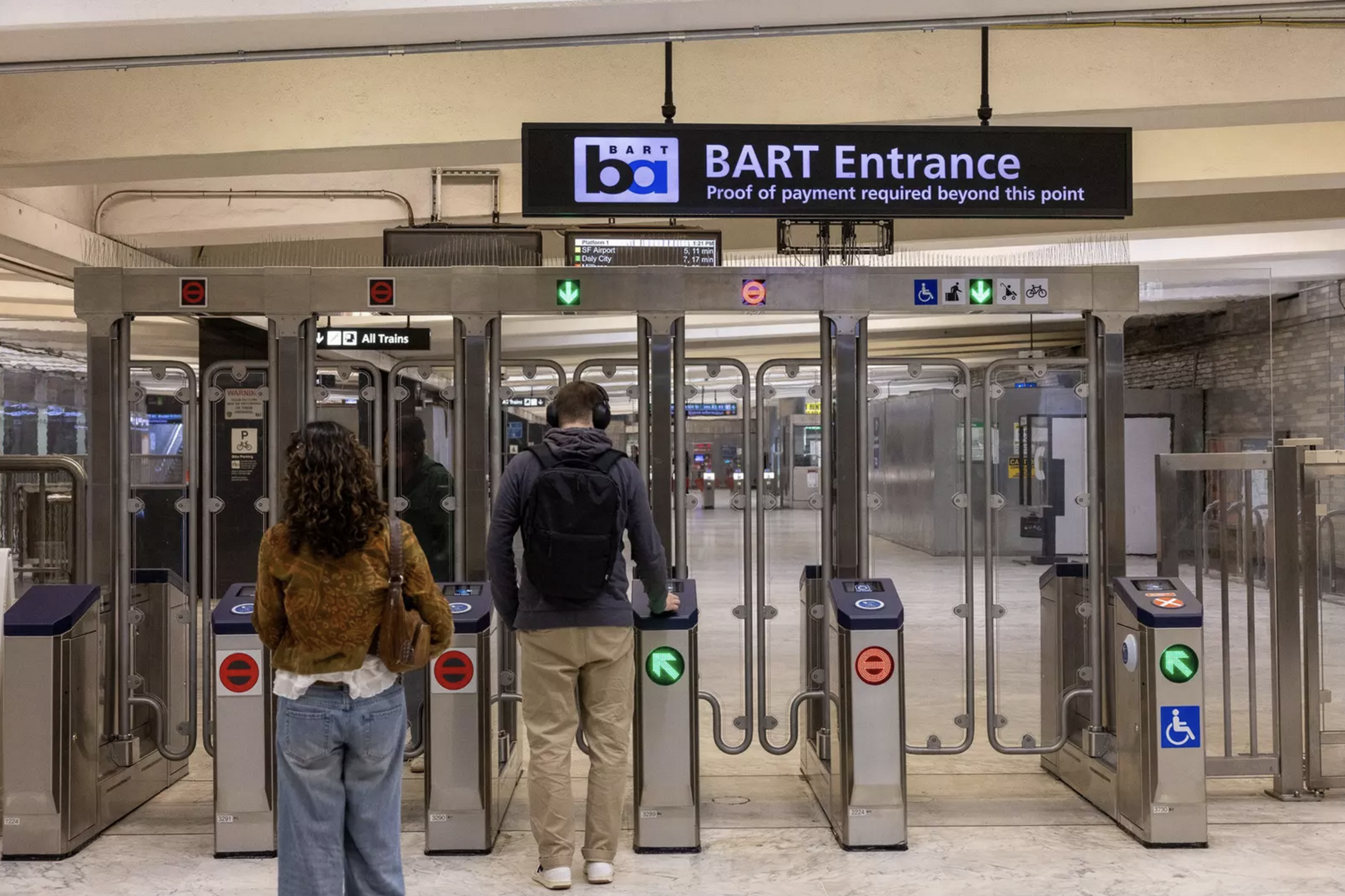Gov. Gavin Newsom signed a bill on Monday that lays the groundwork for a 2026 ballot measure to shore up funding for Bay Area transit systems through a new sales tax.
Senate Bill 63 (opens in new tab), written by state Sens. Scott Wiener (D-San Francisco) and Jesse Arreguín (D-Berkeley), aims to increase funding for local transit systems on the verge of financial devastation amid struggles to recover pre-pandemic ridership numbers.
“The Bay Area runs on transit, and this measure will allow it to keep running for many years to come,” Wiener said in a statement.
Newsom’s signature does not automatically send the tax to the ballot.
Instead, it authorizes two ways to qualify the measure. The first option is for a transit board representing agencies across the Bay Area to send it to voters in November 2026, a harder battle because new taxes typically require a two-thirds majority approval.
But proponents are instead pursuing a voter initiative path, which would need only a simple majority to pass.
If approved, the measure would add a half-cent sales tax in Alameda, Contra Costa, San Mateo, and Santa Clara counties to fund regional systems like BART, Caltrain, AC Transit, the San Francisco Bay Ferry, and the San Mateo County bus system. In San Francisco, the rate would be 1 cent to cover additional San Francisco Municipal Transportation Agency deficits.
In his signing message (opens in new tab), Newsom said he understood as a former supervisor and mayor “how challenging it can be to manage local transit systems.”
But, he warned, “the public’s willingness to support repeated taxes cannot be assumed.”
“Some transit systems fail to adequately demonstrate stewardship, accountability, and innovation,” he wrote, adding that agencies “bear the responsibility of showing how the additional revenues, if approved by voters, will produce tangible outcomes and measurable results.”
Wiener and Arreguín had separately worked this year on a deal with Newsom’s administration to secure a $750 million stopgap loan for transit. But advocates have issued warnings for months that Bay Area transportation systems could face deep service cuts without more long-term funding.
Their predictions include BART trains running only every hour, with no weekend service, and closing certain stations and lines. They also warned that Muni services could be cut in half and that it would be forced to eliminate subsidies for low-income, youth, and elderly riders.
Sebastian Petty, senior transportation policy adviser for the urbanist group SPUR, told state lawmakers during a September Assembly Transportation Committee hearing that the Bay Area’s transit system was in “deep fiscal crisis” and SB 63 was the “last chance to get sustained regional funding — the only viable path to keep our buses and trains running.”
A legislative analysis of the bill estimated that a ballot measure could raise hundreds of millions of dollars annually through the tax for transit systems, and would likely “reduce pressure on the state to fund them.”
Business and taxpayer groups opposed the measure, arguing that the tax would worsen affordability issues in the state. Assemblymember Diane Papan, a Democrat who represents San Mateo County, also joined Republicans in voting against the bill during the September hearing over concerns that it was a “bailout.”
“These transit agencies are asking us to save them, but they can’t save themselves,” she said, raising concerns over mismanagement of operations.
The final version of the bill includes enhanced accountability requirements for transit systems.
Should the regional measure qualify for the ballot, San Francisco voters could have two transit funding measures to consider in November 2026.
Mayor Daniel Lurie is separately working on a measure to save Muni that would keep bus services running with a new parcel tax on properties.
“We still have a long road ahead to secure the future of our trains and buses, but with the enactment of SB 63 and the mayor’s funding measure for Muni, we have a clear path to stabilizing the system,” Wiener said.
